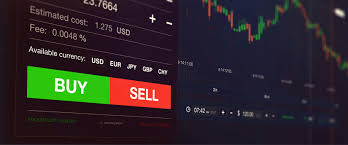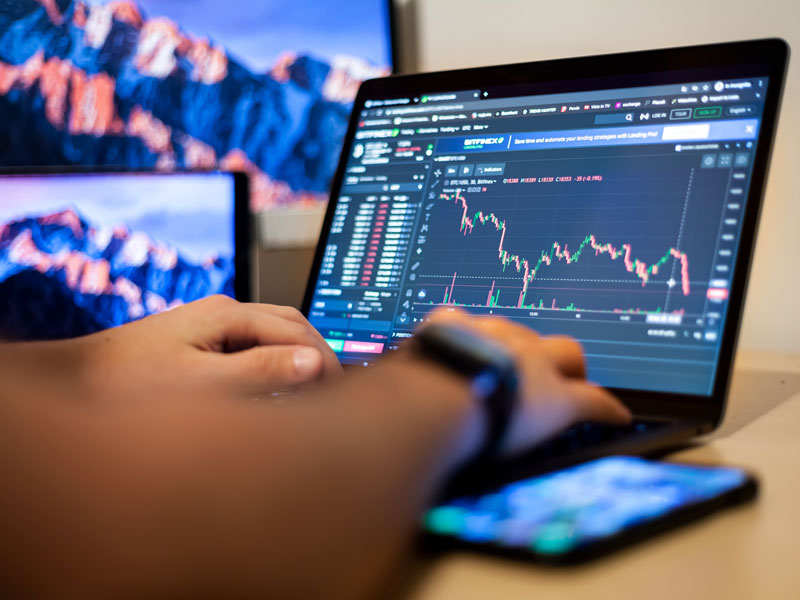
Understanding the Importance of a Demo Forex Trading Account
A demo forex trading account is an essential tool for traders who are looking to start their journey in the world of forex trading. These accounts provide a risk-free environment to learn the mechanics of trading, test strategies, and gain familiarity with the trading platform. By practicing with simulated money, traders can build confidence in their trading abilities before entering the live market. For more information on trading resources, you can visit demo forex trading account https://trading-ph.com/.
What is a Demo Forex Trading Account?
A demo forex trading account is a type of trading account that allows you to trade currencies using virtual money. It is often offered by brokerage firms as a free service to attract new clients. The account simulates real trading conditions, providing users with access to the same trading platforms and tools that they would use if they were trading with real funds. This makes it a perfect environment for new traders to understand how the forex market operates.
Why Use a Demo Account?
There are several compelling reasons for beginners to utilize a demo account:
1. Learning the Basics
The forex market can be overwhelming for newcomers, with its complex terminologies and various trading strategies. A demo account allows beginners to get accustomed to the trading platform and the basic mechanics of trading without the fear of losing real money. It’s an ideal way to learn how to place trades, set stop losses, and use take profit orders.
2. Testing Trading Strategies
Once a trader has learned the basics, the next step is to develop and test trading strategies. A demo account enables traders to experiment with different strategies in a risk-free environment. They can analyze the effectiveness of their strategies over time and make adjustments as needed.
3. Practicing Risk Management
Risk management is a crucial aspect of forex trading. A demo account allows traders to practice implementing various risk management techniques, such as setting proper position sizes and stop-loss levels. This training can help traders make better decisions when they transition to a live trading account.
4. Building Confidence
Confidence is key to successful trading. By using a demo account, traders can build their confidence by making trades and seeing their results without the emotional pressure of risking real money. This psychological rehearsal can make a big difference when it comes time to trade with real funds.
How to Choose a Demo Account
When selecting a demo account, consider the following factors:
1. Broker Reputation
Choose a reputable brokerage that is well-known in the trading community. Look for reviews and testimonials to gauge the reliability and effectiveness of their demo account offerings.
2. User-Friendly Trading Platform
The trading platform should be intuitive and easy to navigate. A complicated platform can deter learning and create unnecessary stress. Look for platforms that offer good charting tools, live market data, and demo account features.
3. Access to Educational Resources

Many brokers provide additional educational materials, tutorials, and webinars to help their demo account users become better traders. Access to these resources can enhance your learning experience.
4. Duration of the Demo Account
Some brokers impose a time limit on demo accounts. Make sure to check how long you can use the demo account before it expires. Ideally, you should be able to practice for several weeks or even months.
Common Mistakes to Avoid
While utilizing a demo account is a great way to learn, there are common pitfalls that traders should avoid:
1. Treating It Like a Game
Some traders make the mistake of treating demo trading like a game. While it is risk-free, it is important to approach it with a serious mindset to prepare for real-world trading scenarios.
2. Not Developing a Trading Plan
Many traders jump into demo trading without a clear plan. Having a trading plan is crucial, and it should include specific goals, risk management strategies, and an assessment of performance.
3. Ignoring Emotional Factors
Emotions play a significant role in trading. While trading with a demo account might come without financial stakes, traders should recognize that emotional reactions will be different when real money is at risk. It’s important to simulate real trading conditions as much as possible, including how you react to wins and losses.
Transitioning from Demo to Live Trading
After spending sufficient time on a demo account and feeling confident in your trading skills, you may be ready to transition to a live trading account. Here are some tips for making that transition:
1. Start Small
When you begin live trading, start with small amounts of capital. This allows you to experience real market conditions without risking significant losses.
2. Stick to Your Trading Plan
Continue to adhere to the trading plan that you developed during your demo trading phase. Whether it’s about maintaining your risk management strategy or following your entry and exit points, consistency is key.
3. Monitor Your Emotions
Stay aware of your emotional state as you trade. Fear and greed can cloud your judgment, so it’s crucial to stay disciplined and make rational trading decisions.
Conclusion
A demo forex trading account is a valuable resource for any trader looking to enter the forex market. It provides a supportive learning environment to understand trading mechanics, test strategies, and build confidence without financial risks. By approaching a demo account seriously and treating it as a significant learning tool, traders can lay a strong foundation for their future trading endeavors.